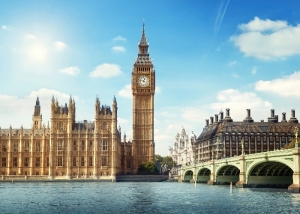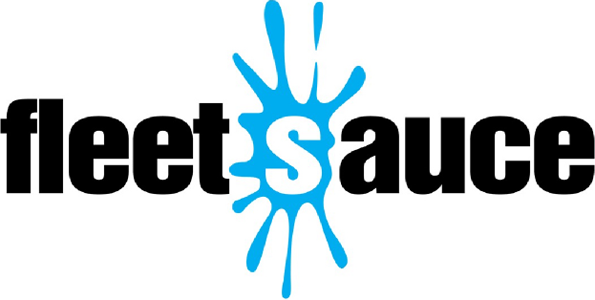
Autumn Statement and How it Affects You

(Posted on 02/12/16)
Chancellor Philip Hammond has delivered his first Autumn Statement, and made a number of announcements that affect the fleet industry.
On company car tax, the government will introduce a new, more granulated range of company car tax bandings for ultra-low emission cars from April 2020. The changes will see 15 new bandings introduced, of which 11 will be for ULEVS. From 2020, the appropriate percentages for zero emission cars will drop from 16% to 2%, while those for cars with CO2 emissions between 1g/km and 50g/km will vary between 2% and 14% depending on the number of zero-emission miles the vehicle can travel. The measure also increases appropriate percentages by 1 percentage point to a maximum value of 37% for cars with CO2 emissions of 90g/km and above.
“We are pleased that the government has recognised the importance of the company car market in supporting the take up of ultra-low emission vehicles,” said BVRLA Chief Executive, Gerry Keaney. “These new bandings will create a much greater incentive for employers and employees to choose the cleanest electric and hybrid cars. However, these decisions are pragmatic, cost-conscious ones and we are concerned that they may be deferred until the incentives come into effect.
"The ULEV market could suffer in the meantime as company car tax costs rise significantly between now and 2019. We will continue to push the government to introduce green incentives that work now rather than later. In the meantime, BVRLA members will continue to help their customers reduce their overall transport costs.”
Elsewhere, Mr Hammond announced that ultra-low emission cars will be exempt from the government's shake-up of the employee benefits tax regime. Delivering the Autumn Statement, the Chancellor said: "The government will take action now to reduce the difference between the treatment of cash earnings and benefits. The majority of employees pay tax on a cash salary. But some are able to sacrifice salary and pay much lower tax on benefits in kind. This is unfair, and so from April 2017 employers and employees who use these schemes will pay the same taxes as everyone else. Following consultation with stakeholders, ultra-low emission cars, pensions saving, childcare and the cycle to work scheme will be excluded from this change."
These changes will see the tax and employer National Insurance advantages of salary sacrifice removed. HM Revenue and Customs initially planned to include cars in its proposals, but following lobbying from the BVRLA, cars that emit less than 75g/km CO2 will be exempted. HMRC has said that it will not punish people for decisions they have already made or are about to make by confirming that it will protect any existing employer-provided car arrangements made before April 2017. This protection will last until April 2021.
“The Chancellor has clearly grasped the vital role that the company car sector plays in driving uptake of low emission vehicles,” said Mr Keaney. “Nearly 3% of the company cars provided by BVRLA members emit less than 75g/km CO2. However, ULEVs are more expensive than the average car and are currently not suitable for every lifestyle or work environment. These tax changes could deter many employees from choosing a modern, safer, cleaner company-provided vehicle and see them opt for an older, dirtier and more dangerous alternative. The average company car is well under two-years-old and emits under 120g/km CO2. The average privately-owned car is around eight-years-old and emits more than 150g/km CO2.
“In addition, the government has set a very ambitious implementation date of April 2017, which gives providers and employers very little time to prepare their systems for these new rules.”
As no mention was made of Vehicle Excise Duty, the BVRLA has expressed its disappointment that the government missed its opportunity to reconsider the new VED regime being introduced next year.
“The new VED regime will hit car rental companies with an extra tax bill of more than £30m in 2017,” said Mr Keaney. “This tax hike is unfair and will impact the industry’s ability to deliver flexible and affordable road transport to millions of customers. The changes will result in many companies running their fleets for longer and we expect this to result in nearly 30,000 fewer new car registrations next year.”
There was, however, some positive news on fuel duty, where the Chancellor decided to extend the fuel duty freeze for the seventh year in succession. Keaney added “This decision will be welcomed by the millions of motorists and businesses for whom transport costs remain a huge burden. The government should give greater consideration to the evidence suggesting that a reduction in fuel duty could actually deliver a boost to the UK economy.”
The UK is also set to benefit from an additional £390m investment in electric, connected and autonomous vehicles, and £220 million for relieving traffic pinch-points on the strategic road network. This includes £80 million for charging infrastructure, and businesses will also will be able to deduct the full cost of a new charge point from their profits before tax, as the Chancellor announced 100% first-year allowances for new workplace charge points. Commenting on these measures, Mr Keaney said: "The Plug-In-Car Grant has helped drive uptake of electric vehicles, but the BVRLA has long called for a more extensive range of business-focussed incentives. The £80m for charging infrastructure announced today alongside the 100% first-year allowances for new workplace charge points will be a major shot in the arm for the ULEV market. The strategic road network only accounts for 2.4% of English roads pace but handles more than a third of traffic. The £220 million allocated for relieving traffic pinch-points on the SRN will be money well spent.”
Elsewhere, the Chancellor announced that the rate of corporation tax will be cut to 17% by 2020, the Insurance Premium Tax will rise from 10% to 12% in June 2017, and the National Living Wage will rise from £7.20 to £7.50 from April 2017.
The full 2016 Autumn Statement document can be downloaded from HM Treasury's webpage. The BVRLA has also created an advice webpage for members to delve into the full detail of the Chancellor's announcements.
Source: BVRLA
 Expert Advice
Expert Advice  Competitive Prices
Competitive Prices Road Tax & Roadside Assistance
Road Tax & Roadside Assistance Free National Delivery
Free National Delivery Full Manufacturer’s Warranty
Full Manufacturer’s Warranty





